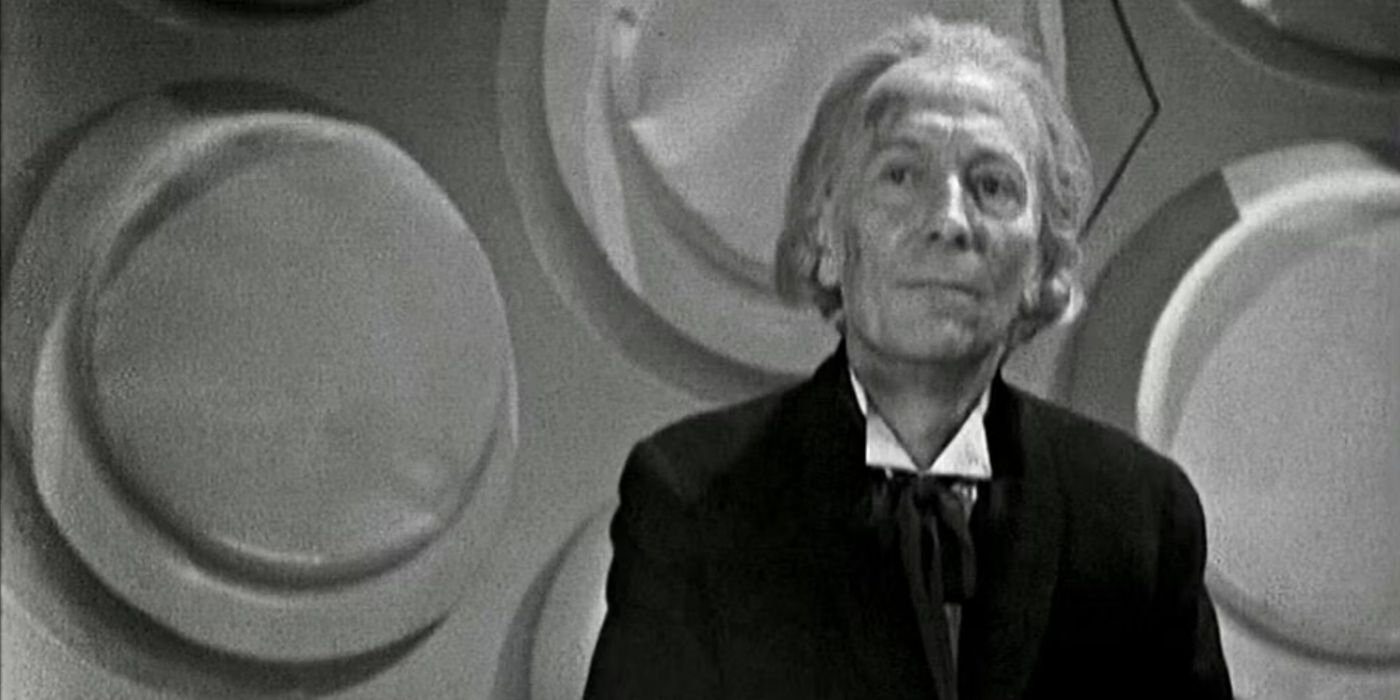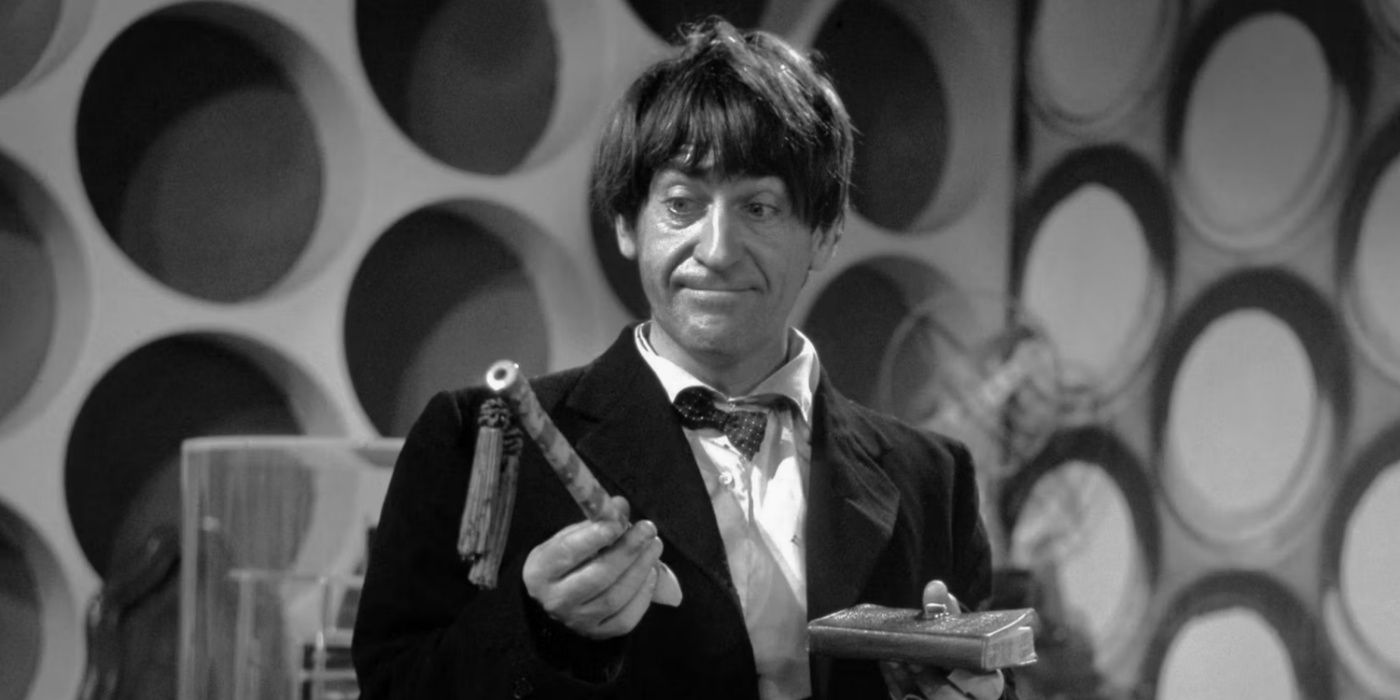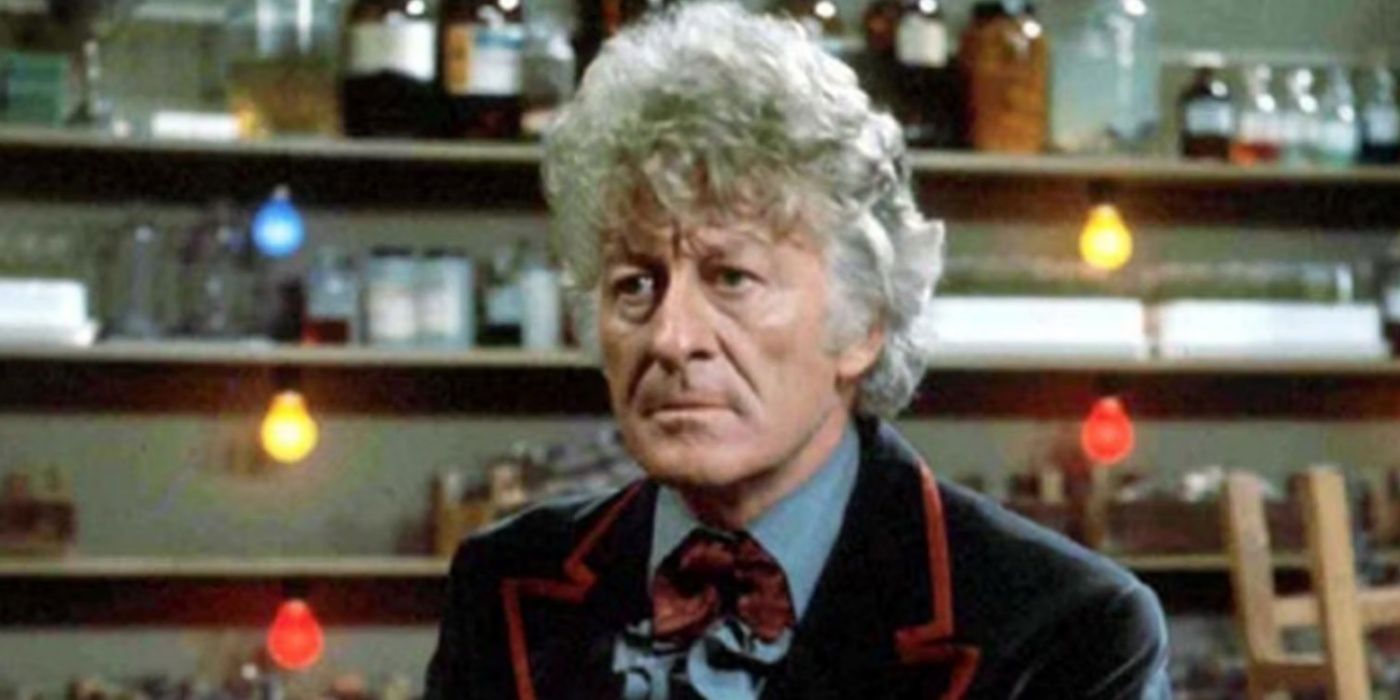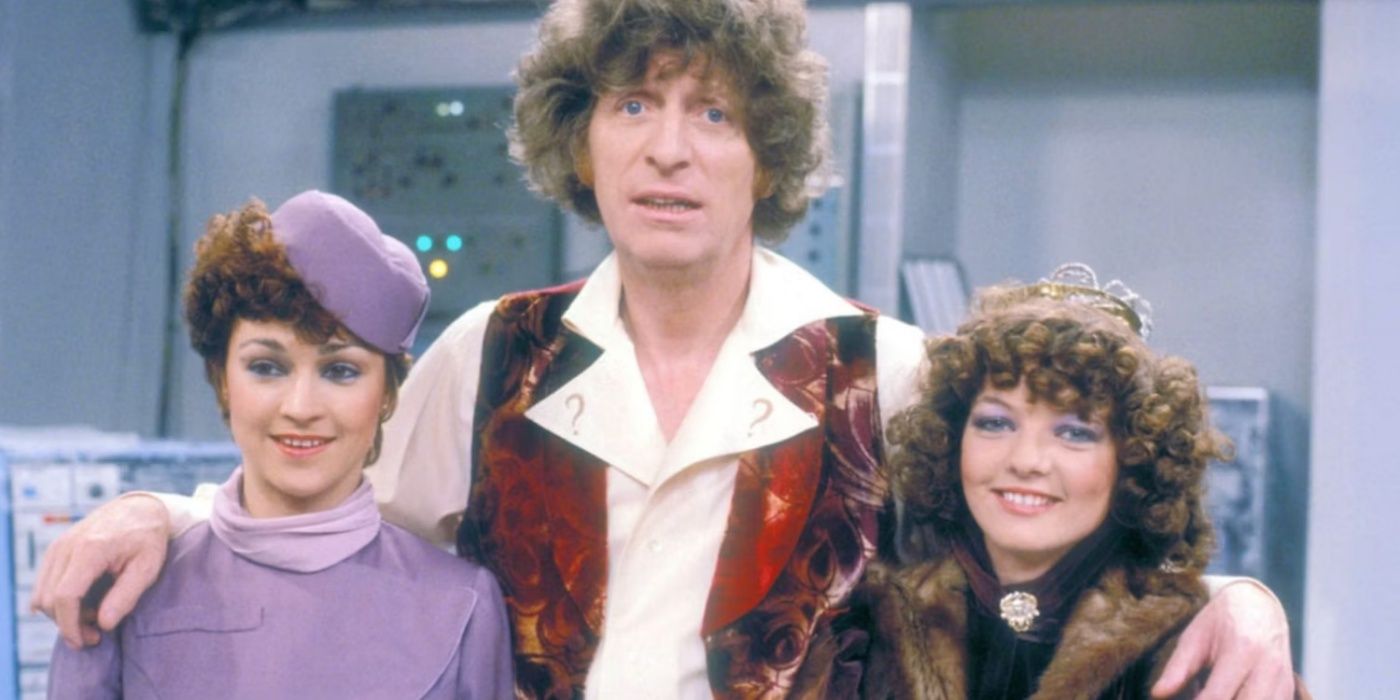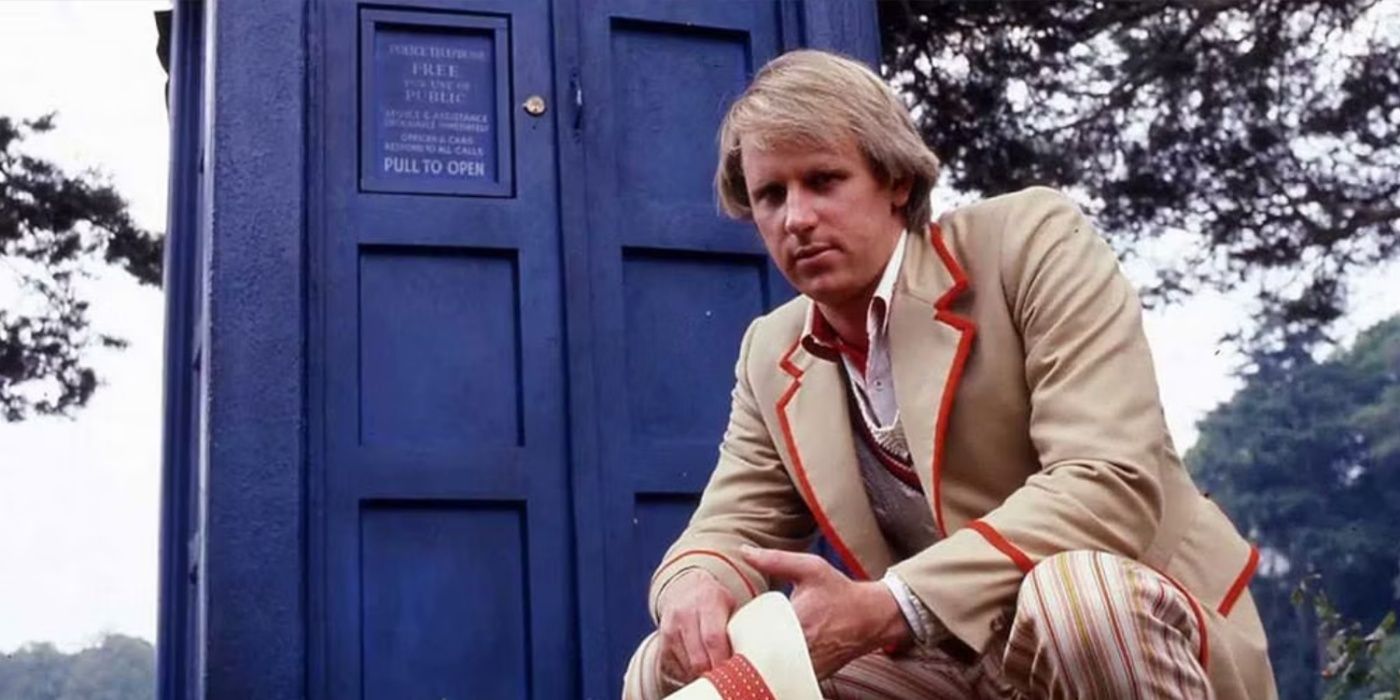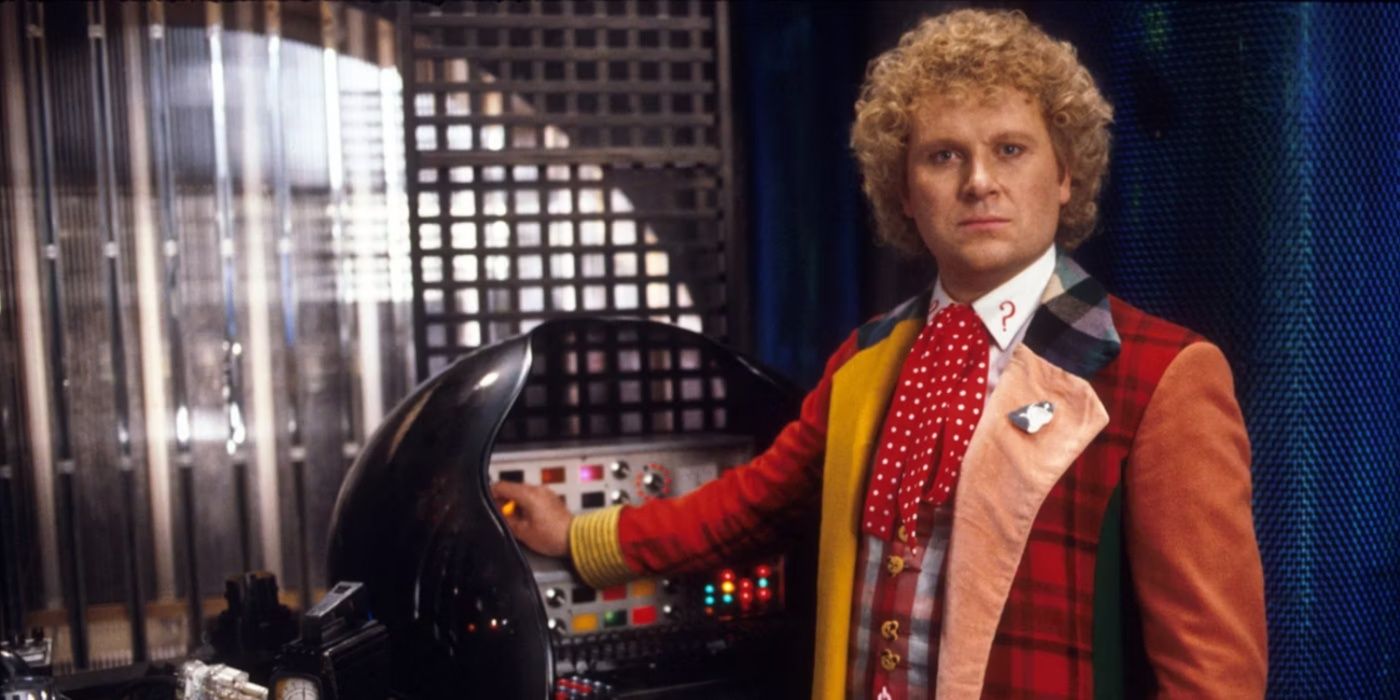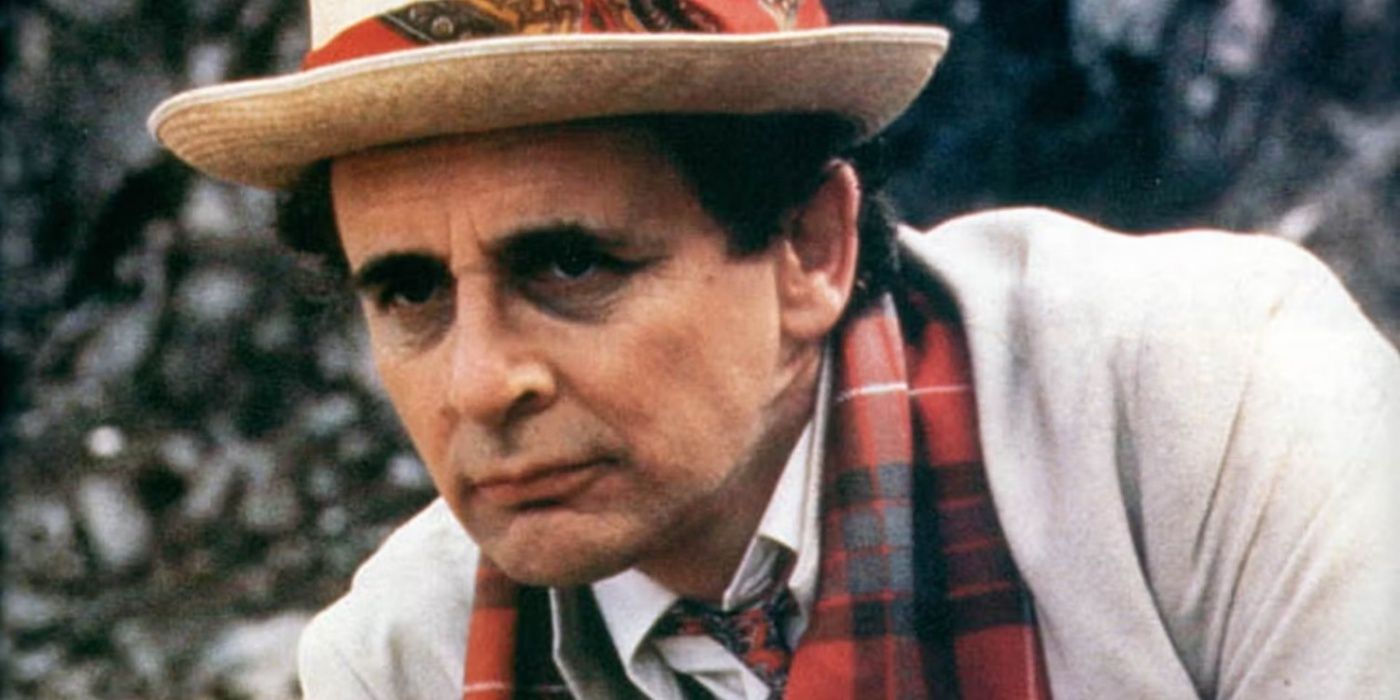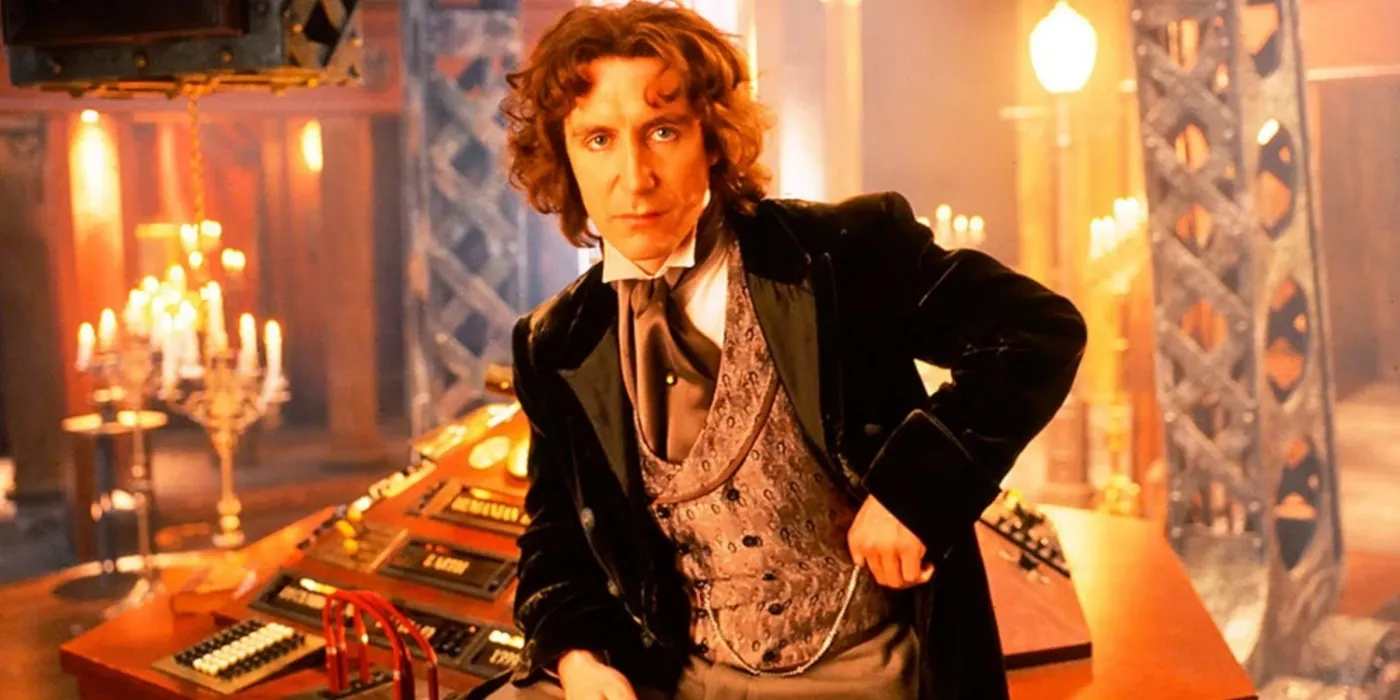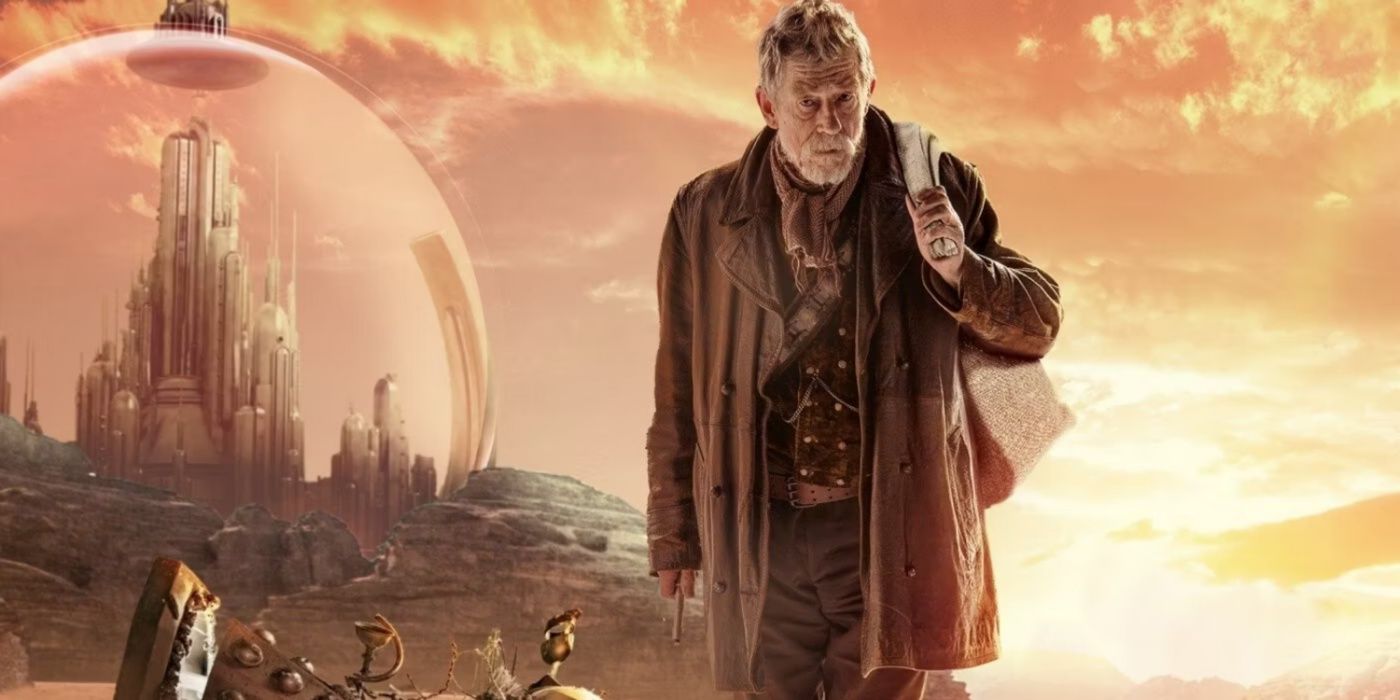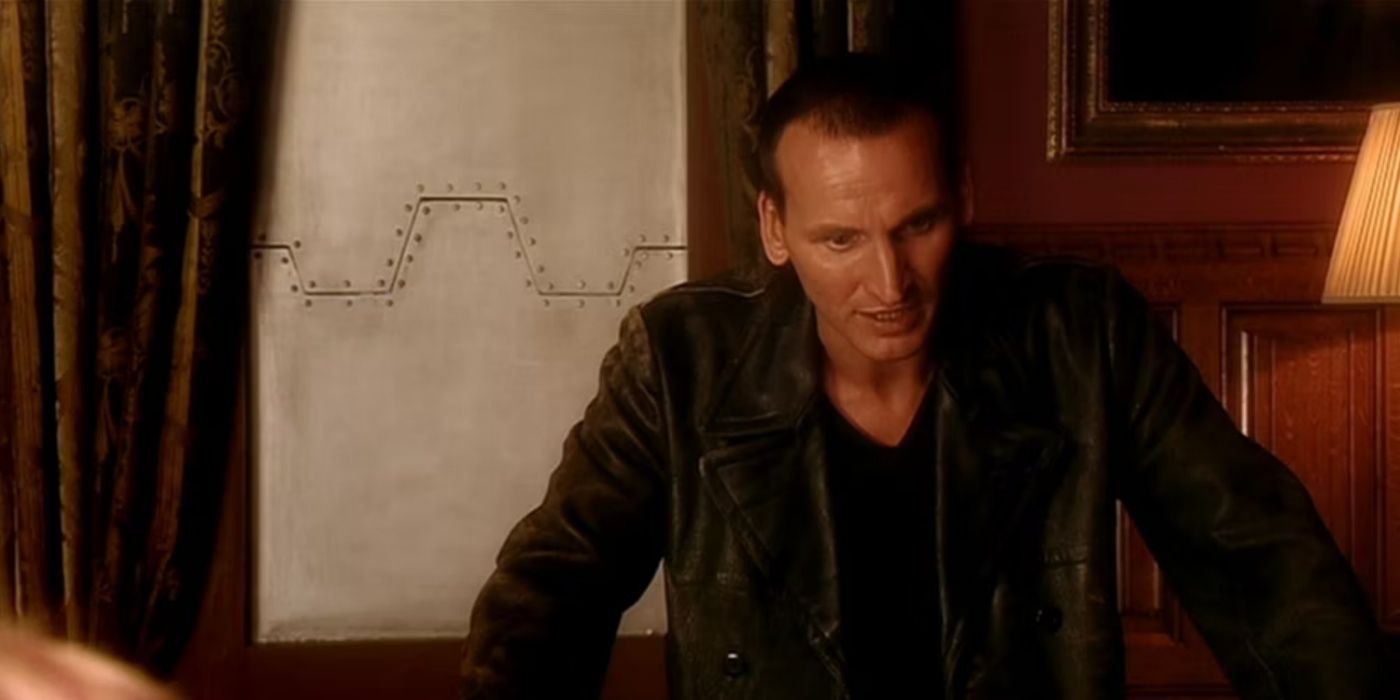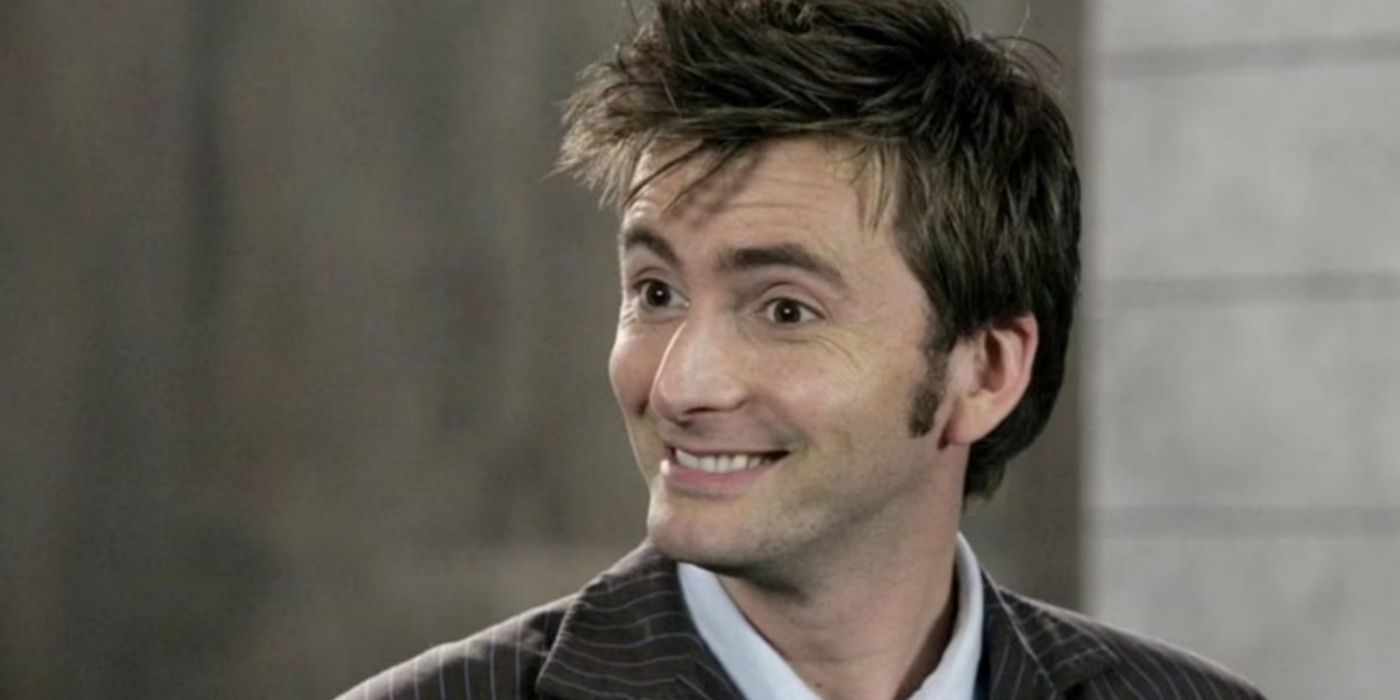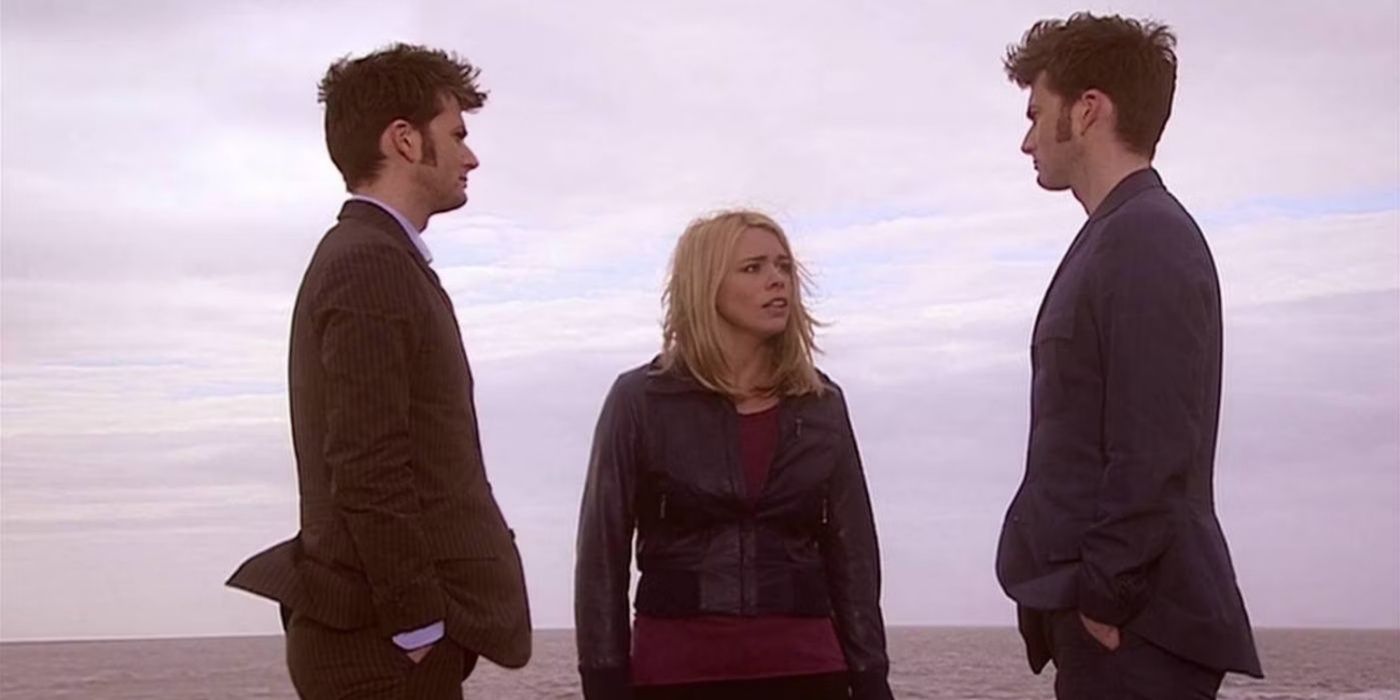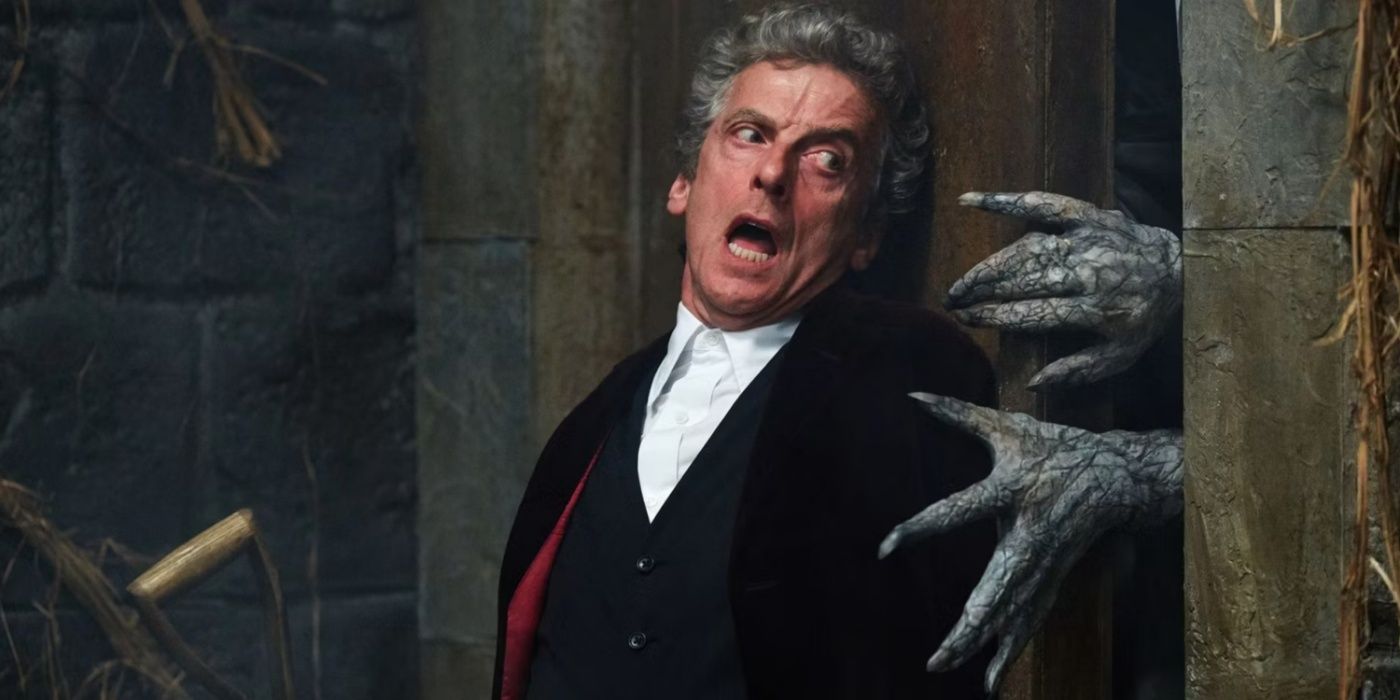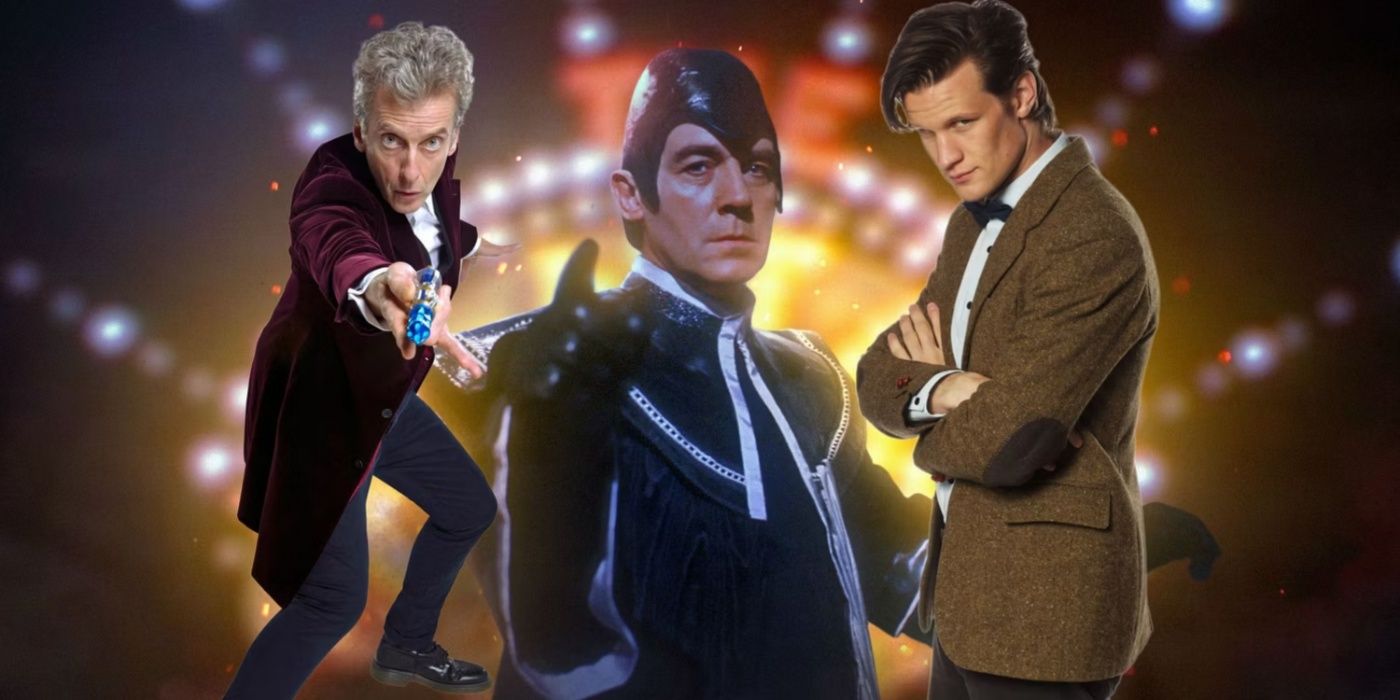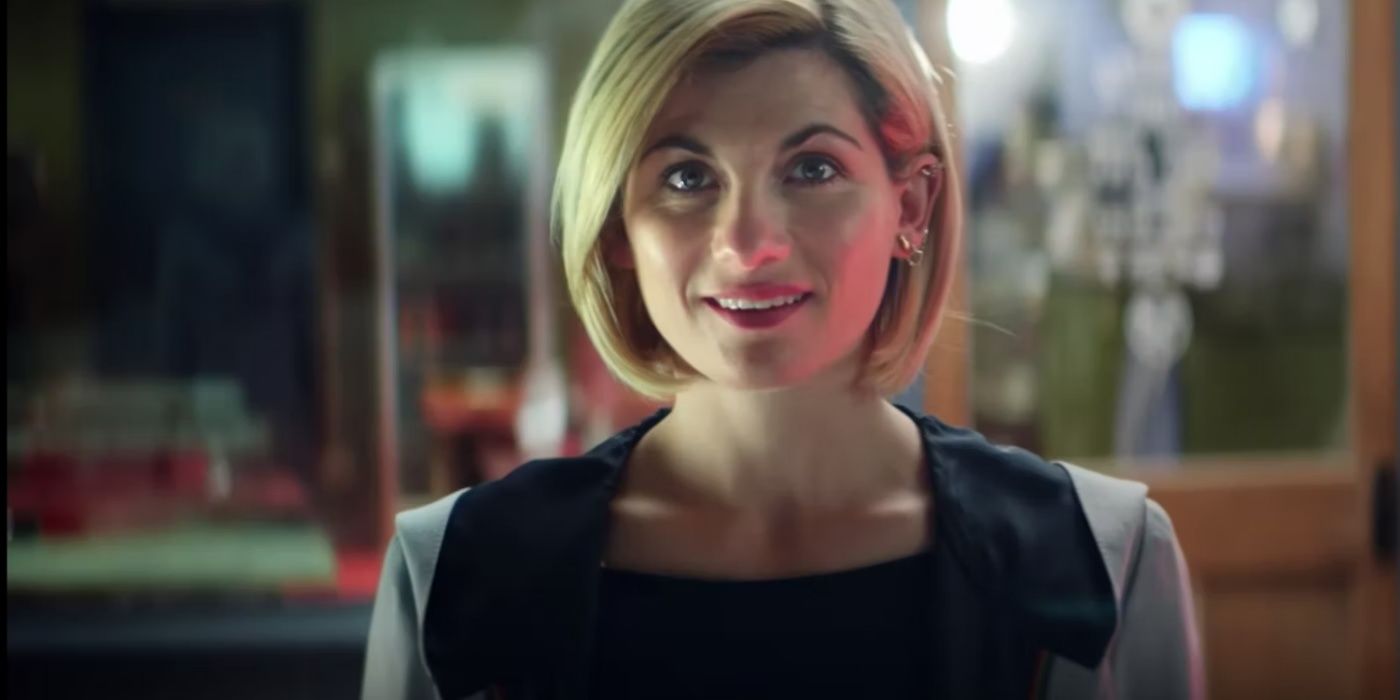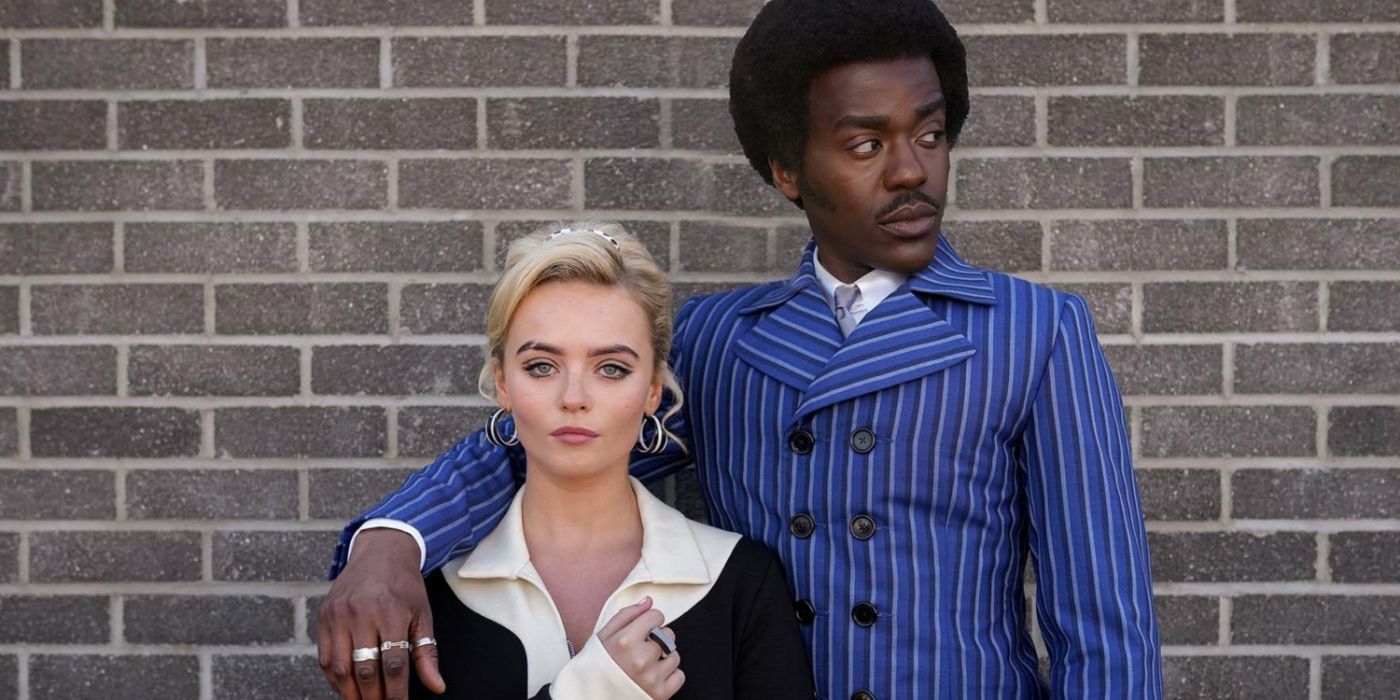Summary
- Ncuti Gatwa is the 14th Doctor and the first Black actor to take on the iconic role, continuing the legacy of charismatic Doctors in Doctor Who.
- Each actor who portrays the Doctor brings a unique take on the character, defining the show during their time in the role.
- The Doctor’s regenerations throughout the show’s extensive run have showcased different personalities, fashion sense, and storylines, keeping Doctor Who fresh and appealing to audiences for decades.
Doctor Who remained a staple of British sci-fi TV for nearly six decades, and its rotating cast of charismatic Doctor Who doctors, in order, maintains its status. In a role made immortal by Tom Baker, David Tennant, Sean Pertwee, Matt Smith, and many others, Sex Education’s Ncuti Gatwa stepped into the 14th Doctor in Doctor Who. Starting as the new Doctor after Jodie Whittaker’s 13th Doctor regenerates, Gatwa was also the first Black Doctor in the show’s extensive run. Part of Doctor Who‘s appeal is that the titular Doctor is an alien Time Lord who regenerates with a new body, face, and fashion sense instead of dying.
Including the various non-numerical versions like John Hurt’s War Doctor, Ncuti Gatwa is the 17th actor to be cast as one of the Doctor’s many regenerations. Each actor has a unique take on the character which defines the show while they’re in the role. After his standout performance as Eric Effiong in Sex Education, Gatwa brings a lot to the Doctor Who franchise. The show started running in the early 1960s and, despite a temporary break, it’s still going strong. Each version of the Doctor is different, but almost all of them got their opportunity to shine thanks to the actors who play the Doctor.
17 The First Doctor
The First Doctor kickstarted the series in 1963. He was also one of the few regenerations of the Doctor that traveled with another Time Lord – or, in this case, a Time Lady – the Doctor’s granddaughter, Susan. William Hartnell played the First Doctor, and his no-nonsense personality and dry wit made him different from the regenerations that came after him. Plus, unlike other Doctors, this one even didn’t like humans all that much. However, while not energetic, he was brilliant and had a commanding presence, creating the template that all Doctors after him followed in one way or another.
16 The Second Doctor
Nothing lasts forever, and Doctor Who is no exception. When William Hartnell had to leave the show because of health issues, the Doctor regenerated and changed into Patrick Troughton. Troughton’s Doctor also started the tradition of each Doctor having a different personality than the previous regenerations. The Second Doctor was much more relaxed and had a strong sense of humor. He also gave the show a more modern edge, adding the humor and charm that the First Doctor did not possess. This is also where more lighthearted and whimsical storylines came into play.
15 The Third Doctor
For the first time in color – the Third Doctor came to the screen with a style. Jon Pertwee’s Doctor was not only stylish and elegant but also a good fighter as something of an expert in martial arts and – just like the other regenerations – deeply intelligent. Unlike his predecessors, this Doctor spent most of his time on Earth where he was exiled, and he worked with the organization UNIT. He also clashed with the Master for the first time ever. In fact, this happened to be where The Master first appeared.
14 The Fourth Doctor
This regeneration of the Doctor remains one of the most famous ones, at least among those who watched the classic Doctor Who series as well, and not just the renewed show. Tom Baker played the Doctor for seven seasons which gave the audience enough time to get to know his Doctor well. It was also the first time that Doctor Who aired in the USA. This came with a massive change. Where the Third Doctor would use martial arts and battle all his foes, the Fourth Doctor was more eccentric and even offered jelly babies to his enemies. This was also the era where more monsters showed up in the stories, adding more horror to the show.
13 The Fifth Doctor
Long before Matt Smith came onto the show years later, Peter Davison was the youngest actor to play the Doctor. He started playing the Fifth Doctor when he was just 29 years old, which helped set him apart. The Fifth Doctor was different from his previous regenerations as he was quiet and subdued, preferring to think things through over heedlessly throwing himself into danger. He was also the first Doctor who regenerated when he sacrificed his life to save his companion, and his time as the Doctor only lasted for three years before he stepped aside.
12 The Sixth Doctor
The Sixth Doctor’s personality was in many ways similar to his style of clothing – loud, extravagant, and boisterous. That didn’t sit so well with many of the show’s fans since they considered this particular regeneration of the Doctor to be less than sympathetic and likely too much of a change of pace. To be fair to the Sixth Doctor’s actor, Colin Baker, it wasn’t his fault – it was simply the way the Doctor was written. However, the Sixth Doctor later gained more popularity when Baker recorded a series of audio stories from the world of Doctor Who.
11 The Seventh Doctor
The Seventh Doctor was complicated and full of contradictions. He seemingly represented himself as a funny figure and had a sense of humor, but at the same time, he was also brilliant and calculating – something he hid from his enemies, the villains he faced. He returned the Doctor to a more lighthearted and quirky personality, and this offered fans a return to form after the more arrogant Sixth Doctor. Sylvester McCoy portrayed the Seventh Doctor for three seasons, and he was the last Doctor before the show had a long break.
10 The Eighth Doctor
Doctor Who was gone for seven years after BBC canceled the show. When it returned, the half human Eighth Doctor never got the chance to shine in his own seasons like other Doctors. He appeared in a television movie that was supposed to kickstart a new show. But the film failed to attract the attention needed, and the show never came to be. Luckily, Paul McGann returned to his role in multiple audio plays and even played an important part in The Night of the Doctor. His Doctor was more of a romantic figure, similar to more modern-day Doctors.
9 The War Doctor
The late John Hurt portrayed the War Doctor – a regeneration of the Doctor whose existence was previously hidden. It turned out that this Doctor refused to call himself the Doctor because he was the one who fought in the Time War – and also the one who stopped it. Unfortunately, for the Doctor to stop the Time War, he had to commit unspeakable acts, which left him disillusioned and distant. It was his actions during the Tim War that influenced several of the iterations of the Doctor that appeared in later years.
8 The Ninth Doctor
The Ninth Doctor, portrayed by Christopher Eccleston, started the renewed Doctor Who show. And even though he only played the character in the first season, he still left his mark. Eccleston’s Doctor was somewhat cynical and jaded, consequences of the recent Time War against the Daleks and the enormous loss he suffered. Still, his friendship with Rose helped him to start to see the world differently. After dealing with survivor’s guilt thanks to his actions in the war, history repeated itself. The Fifth Doctor, the Ninth Doctor also sacrificed his life to save his companion.
7 The Tenth Doctor
The Tenth Doctor, played by David Tennant, remains one of the most popular Doctors, if not the most popular one. The Tenth Doctor was charming and funny, but he also had a darker side to him that came out especially after he lost Rose when she was stranded in a different universe. Tennant’s Doctor was never afraid to charge into danger, and he seemed to have thrived when facing his enemies. This was the Doctor that introduced a new generation of fans to Doctor Who and his one-liners and human characteristics made him relatable and quirky, a very hard version of the Doctor for anyone to follow.
Even though he wasn’t a Time Lord, he still remains a Doctor. The Meta-Crisis Doctor was a human version of the Tenth Doctor. He grew up from the Doctor’s severed hand and had both his and Donna’s genes. He was more violent and unpredictable than the Tenth Doctor. Instead of traveling in the TARDIS, the Meta-Crisis Doctor went to live with Rose Tyler in her world, and they became a couple. He ended up going by the name Corin and ended up more human-like, aging normally and unable to regenerate. He was also less rational and would rush into danger without a thought.
5 The Eleventh Doctor
The Eleventh Doctor was the youngest one, appearance-wise, and his looks reflected his personality. He was cheerful, geeky, and often awkward when dealing with other people. But Matt Smith’s Doctor also had a heart of gold and was very loyal to the few people he considered his friends. He would go to the ends of the Earth and more to protect Amy, Rory, and everyone he loved. What was impressive about Smith was that he followed Tennant and was still able to hold his own and earn his own supporters in the world of Whovians.
4 The Twelfth Doctor
The Doctor Who doctors in order saw the franchise go from the youngest iteration to one of the oldest. Interestingly enough, Peter Capaldi was the same age (55) as William Hartnell when he started playing the Doctor. The Twelfth Doctor was not only visibly older than his previous regeneration but also more conflicted about himself. He worked hard to find out who he was as a person, and whether he was a good man at all but he still found time for humor and built a strong friendship with Clara. He was also very Scottish and had a more eclectic personality, with a love for playing guitar and a distaste for war.
3 Valeyard
Valeyard’s position in the world of Doctor Who is complicated – and many fans of the show aren’t even aware of his existence. It’s also difficult to know where he stands in Doctor Who doctors in order – but he could fit somewhere between the Twelfth and Thirteenth Doctor. And who, exactly, is Valeyard? He’s supposed to embody Doctor’s darker side, his character traits that aren’t as optimistic. His face belongs to the actor Michael Jayston, but some fans speculate that Ruth, played by Jo Martin, could also turn out to be Valeyard.
2 The Thirteenth Doctor
Jodie Whittaker made history as the first portrayal of the Doctor as a female character. She was in some aspects more similar to the Doctors from the classic series since she wasn’t as open about her past and her planet as the previous Doctors. She kept her secrets closer to her, but that didn’t stop her from forming strong bonds with her companions whom she fiercely protected. She was fun, compassionate, optimistic, and enthusiastic. Whittaker was also the first female incarnation of The Doctor, a groundbreaking moment in the series.
1 The Fourteenth Doctor
Ncuti Gatwa is the first Black actor to take up the mantle of the Doctor. In the footsteps of Jodie Whittaker, Gatwa is another Doctor Who casting that redefines character tradition. His casting reaffirms that it’s not the color of the Doctor’s skin that makes him a legend on the small screen. Little has been revealed of Gatwa’s take on Doctor Who, but the Doctor’s Fourteenth incarnation is already shaping up to be a franchise-defining run. Gatwa describes his Doctor as being “emotionally vulnerable” but hiding it with humor. He also said his Doctor is lonely, and it sounds similar to Christopher Eccleston and David Tennant’s Ninth and Tenth Doctors.
#Doctor #Played #Chronological #Order

